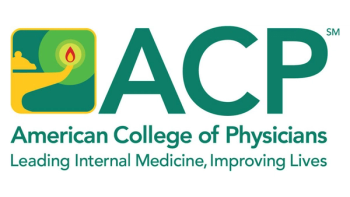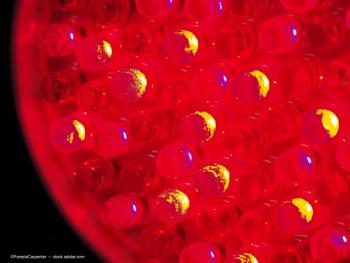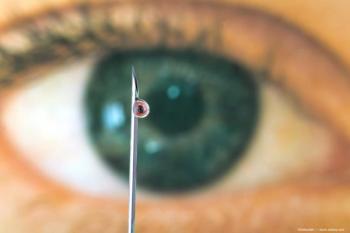
NSAID after Dropless approach shown to lower CME
There was clinically significant less CME in patients who received trans-zonular triamcinolone acetonide, moxifloxacin hydrochloride, and vancomycin-known as the Dropless approach-in addition to an NSAID after cataract surgery.
Reviewed by Ahad Mahootchi, MD
Take-home message: There was clinically significant less CME in patients who received trans-zonular triamcinolone acetonide, moxifloxacin hydrochloride, and vancomycin-known as the Dropless approach-in addition to an NSAID after cataract surgery.
The use of a nonsteroidal anti-inflammatory drug (NSAID) after Dropless cataract surgery lowered the rate of cystoid macular edema (CME) compared with the use of traditional drops, according to a study from Ahad Mahootchi, MD.
Recent:
The Dropless approach used in Dr. Mahootchi’s study included triamcinolone acetonide, moxifloxacin hydrochloride, and vancomycin (TMV, Imprimis Pharmaceuticals). Many surgeons are concerned about using the Dropless approach and will often keep a traditional drop to use in the patient’s regimen.
However, it is debatable which drop would be best to keep, Dr. Mahootchi said. This led him and his co-authors to create their research study. Dr. Mahootchi is in private practice in Zephyrhills, FL.
Courtesy of Ahad Mahootchi, MD
In the study, “rates of CME were compared to a prior cohort of 600 consecutive cases who were given steroid and NSAID drops after the surgery without an intravitreal steroid,” Dr. Mahootchi said.
The TMV group (n = 600) included patients who received both TMV via a trans-zonular approach and an NSAID post-operatively. All patients were monitored for CME up to 90 days postoperatively. In patients with vision of less than 20/30 at the final post-operative visit, clinicians performed optical coherence tomography.
Related:
Dr. Mahootchi found a CME rate of 1.4% with the use of traditional drops (steroid, NSAID, and antibiotic) versus 0.5% when an NSAID was included with transzonular TMV-a clinically significant difference.
“That surprised me because you always hear about older literature that says with vancomycin, there’s a higher risk for CME. It turns out, it’s better that what we were doing before,” Dr. Mahootchi said.
Best of both worlds
Dr. Mahootchi has more than 3 years of experience using TMV during surgery and an NSAID after surgery. “This seems to have the best of both worlds in terms of the benefits of Dropless plus better CME protection,” he said.
Related:
“If using a transzonular steroid (TMV) at the time of surgery, adding NSAID drops may be better than drops alone at preventing CME,” Dr. Mahootchi said.
Courtesy of Ahad Mahootchi, MDAlthough some people might think the addition of NSAID is expensive, Dr. Mahootchi made an arrangement with a local pharmacy to supply generic ketorolac. It’s been low cost, lasts enough for both eyes, and has had no side effects.
The tracking of CME rates with this approach is ongoing, Dr. Mahootchi added.
2016 Year in Review:
Ahad Mahootchi, MD
This article was developed from a presentation that Dr. Mahootchi delivered at the 2016 American Society of Cataract and Refractive Surgery annual meeting.
Dr. Mahootchi is a speaker for Imprimis Pharmaceuticals.
Newsletter
Don’t miss out—get Ophthalmology Times updates on the latest clinical advancements and expert interviews, straight to your inbox.





























